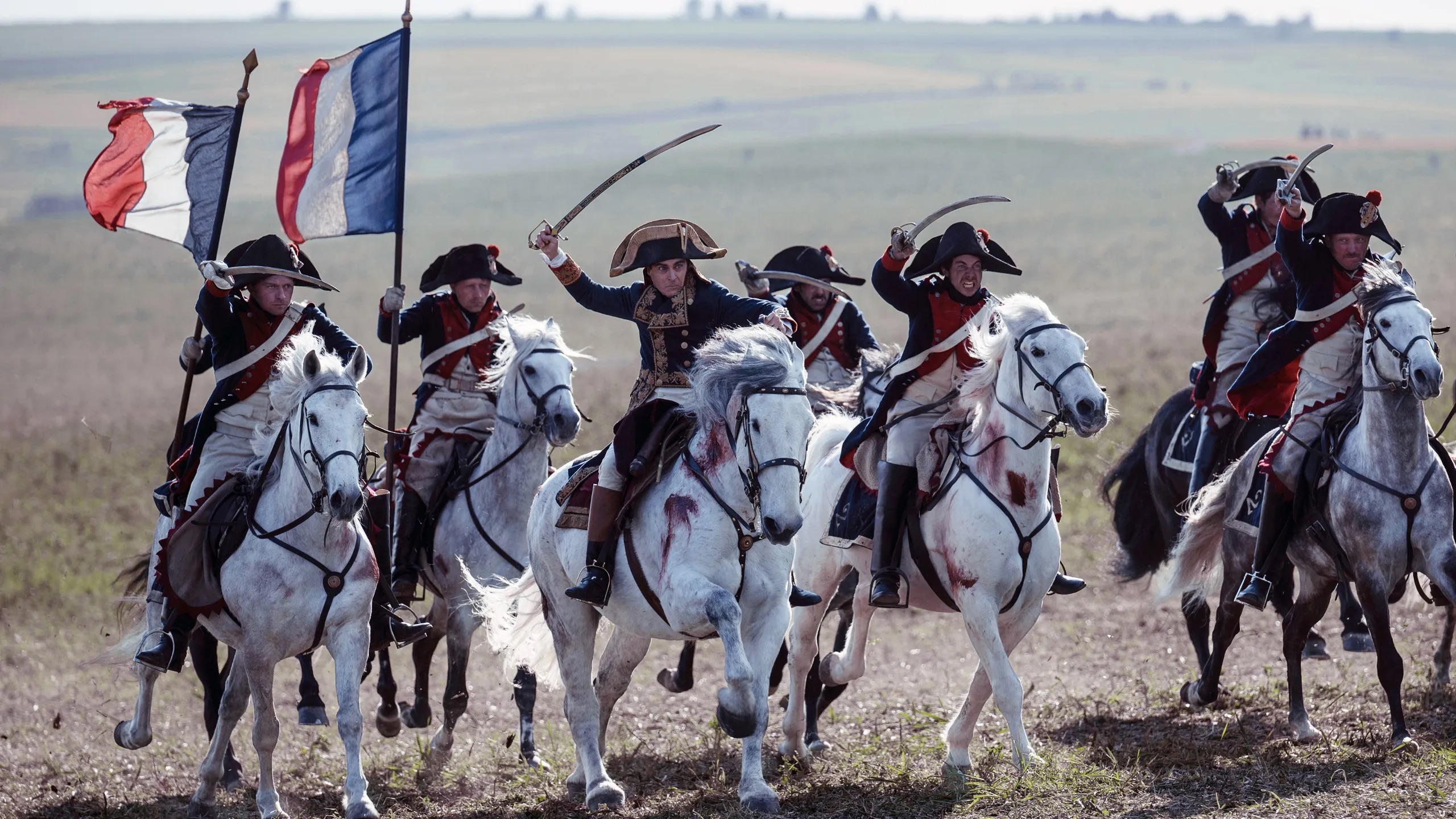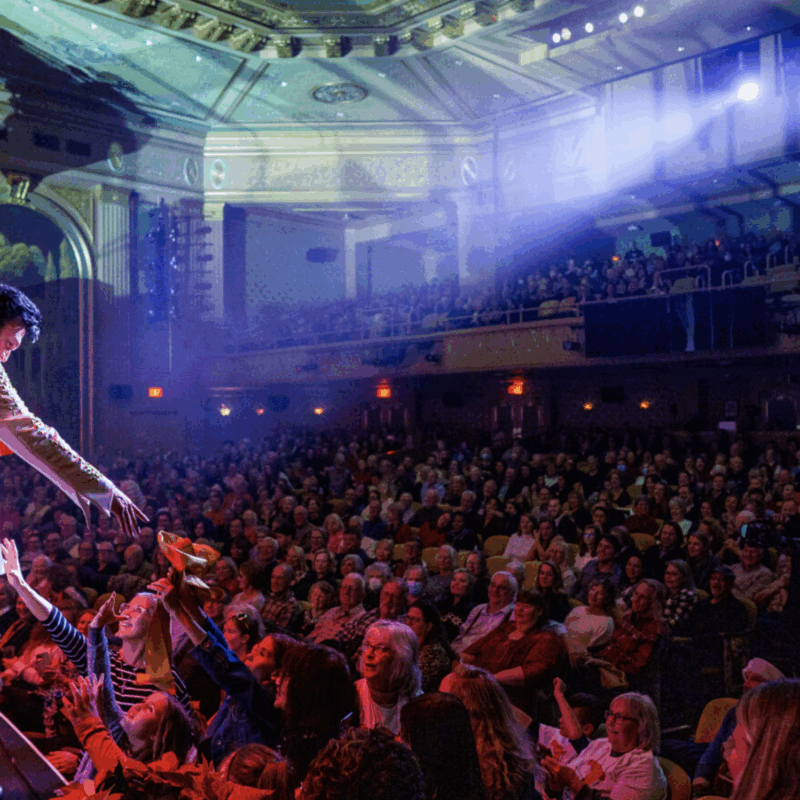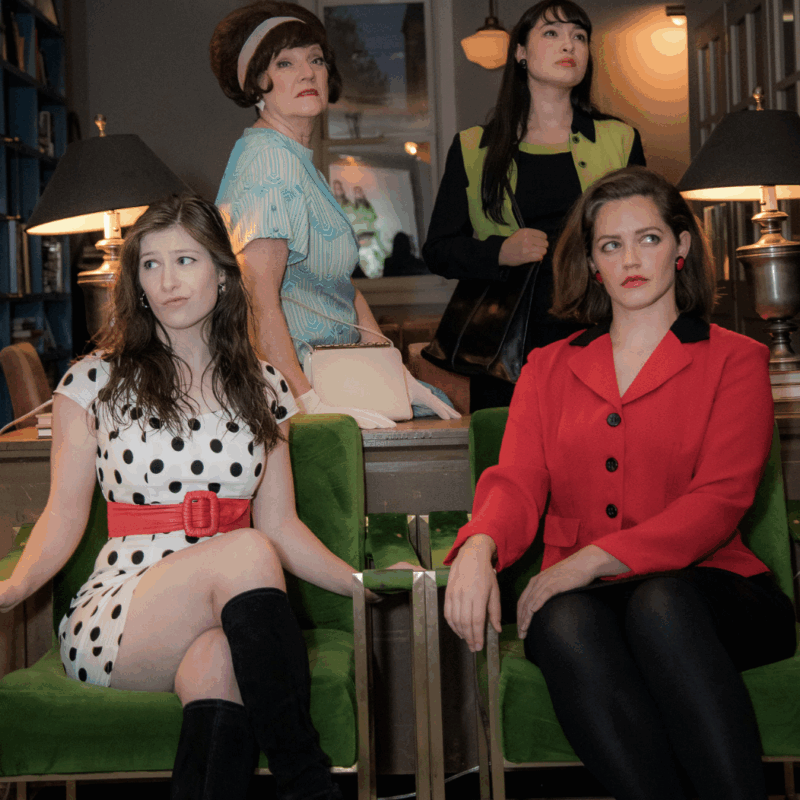Ridley Scott’s historical epic Napoleon covers the well-worn territory of the titular French emperor’s monumental military conquests and eventual downfall. Scott’s battle sequences are undeniably extraordinary, and it’s gorgeous overall, but mediocre dialogue and Joaquin Phoenix’s dull title performance noticeably weaken the film.
Scott opens Napoleon with a climax: a bold sequence depicting the beheading of Marie Antoinette, with Napoleon in attendance—one of the film’s many historical inaccuracies. From there, the story alternates between Napoleon’s rise to power from one bloody battlefield to another and his tumultuous marriage to Josephine (Vanessa Kirby). In this interpretation of history, the conqueror is depicted as mannerless, childish, and deeply insecure, all of which Josephine is well aware of and uses to control him.
At 85, Scott is still fully capable of creating intricate, sweeping battles, heavy on extras and mayhem, and his visions of combat are Napoleon’s real stars. He has lost none of the visual acumen that went into his earlier masterpieces like Alien and Blade Runner, particularly in his lighting and compositions. Likewise, the enthusiasm he showed for restaging the Napoleonic Wars in The Duellists is still vividly apparent.
These exceptional battles overstay their welcome, and the viewer eventually starts to feel buried under all the mortar fire and severed limbs. But the film goes deeply astray with its central human story of Napoleon’s overwhelming passion for Josephine. What made The Duellists so engaging was the central performances by Keith Carradine and Harvey Keitel. Scott’s Napoleon is most significantly undercut by Phoenix as the “Little Colonel.”
Not since Phoenix’s Johnny Cash in Walk the Line has he been so hopelessly miscast. Delivering much of his dialogue in a flavorless monotone, he creates, possibly, cinema’s dullest Napoleon. Were it not for his wardrobe and makeup, it would seem like he was playing an entirely different historical figure. To make matters worse, he keeps adding self-indulgent touches in the worst method acting tradition. Phoenix significantly drains the suspension of disbelief in all of his scenes by constantly reminding the viewer he’s acting.
Despite Phoenix’s lame work here, Kirby gives a fine performance as Josephine, and easily outshines her co-star. The rest of the cast is good, even when saddled with mediocre dialogue—the film’s other big flaw. The cinematography, editing, musical score, production design, and costumes are all excellent. Within Napoleon’s gargantuan scope, the richly detailed wardrobe and sets are up to Scott’s usual exacting standards.
There have been rumors that the theatrical version of Napoleon is significantly shorter than Scott’s full director’s cut, and that the streaming version will be longer. This is a mixed blessing: It will likely flesh-out Napoleon’s character in ways the film doesn’t, but it also means there will be more of Phoenix’s histrionics to deal with. It would be a significantly better film if all of his dialogue was cut.
Napoleon is worth seeing on the big screen almost solely for its battles and visual splendor. Lower your expectations of a stirring or believable lead performance, and the film delivers a halfway extraordinary cinematic experience. But battlefield porn can only carry a movie so far, and its star shouldn’t be its own Waterloo.






